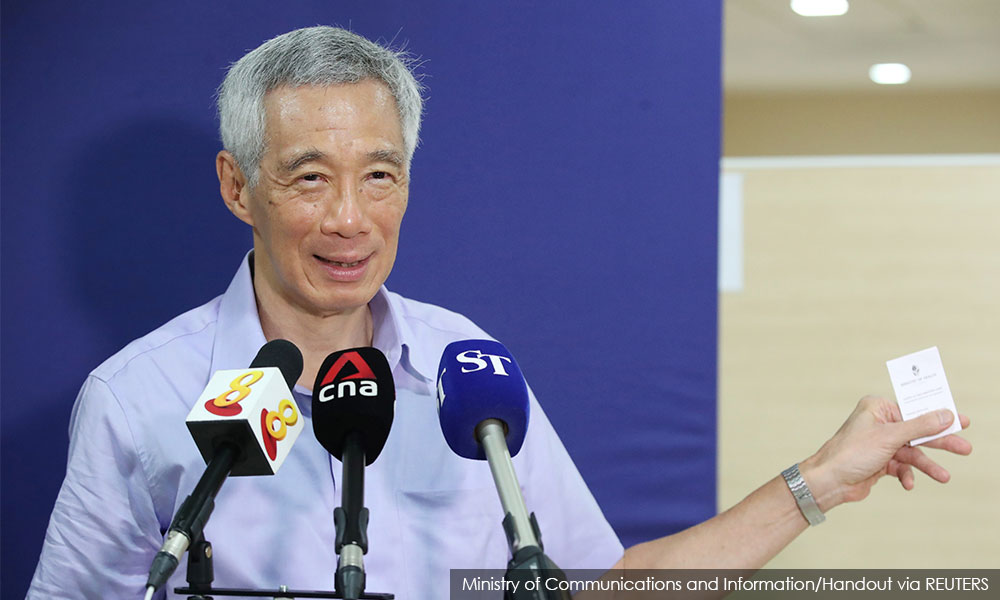MP SPEAKS | Singapore's reputation as a country clean of corruption is renowned. The republic ranked third in the 2020 Corruption Perception Index. It remains the only Asian country placed in the top 10.
Indeed, Singapore also has good standing in other global indicators, such as the Political and Economic Risk Consultancy's 2019 Report on Corruption in Asia, which ranked Singapore the least corrupt country in the region since 1995.
Responding to Singapore's stellar achievements in its fight against corruption, the country's Corrupt Practices Investigation Bureau (CPIB) retorted that it only means they have to work harder to ensure incorruptibility remains part of the DNA of every Singaporean.
As a result, duit kopi is not in the vocabulary, what more the culture of Singaporeans. Singaporeans will not give or accept any form of "social lubricants" to get things done.
On the contrary, Singaporeans will report, without hesitation, any occurrence or even perceptions of any form of corruption at any level of society. Subsequently, there are expectations and accountability for such reports to be investigated and culprits strictly punished if found guilty.
This level of incorruptibility is achieved due to Singapore's no-nonsense attitude towards this root of much of human evil.
Singapore was very clear that if it intended to eliminate corruption, the most effective way is to punish people at the top and make an example out of it. This was exactly what Singapore did.
Upon returning from a holiday with his family and a businessperson friend, a deputy minister was swiftly arrested. He was later charged and went to jail for the holiday which was fully paid for by his businessperson friend.
When it comes to corruption, there is no grey area for Singapore.

Singapore's Prime Minister Lee Hsien Loong gave an assurance that Singapore will not cover up any such investigations, "even if it is awkward or embarrassing for the government".
In 2014, even the assistant director of the CPIB itself was charged for misappropriating $1.7 million. The message was clear. Nobody will be spared. There will be no exceptions.
Singaporeans trust that the law applies to all and that the government will enforce the laws without fear or favour. And this hawk-eye attitude towards corruption exemplified by Singapore's leaders permeates through all levels of government and society.
Even the nation's favourite sporting game, football, was not spared. In 2013, a referee and two assistants were charged with corruption for accepting "free sexual services" in return for fixing an Asian Football Confederation Cup match in Singapore. The referee was sentenced to six months in jail and banned for life from refereeing.
In fact, in 2001, the Football Association of Singapore introduced a compulsory polygraph test for all its players to go through. Players will have to sign a form agreeing that the polygraph tests can be conducted at random. The use of polygraph tests for players was a key deterrent in the fight against match-fixing in football in Singapore.
MACC chief commissioner Azam Baki has rightfully urged Muslims in Malaysia to despise corruption the way they despise pigs (khinzir). Indeed, as a Muslim majority country, Malaysia should be the champion in fighting corruption and should be leading at least other countries in Asia in the fight against corruption.
A study by the International Monetary Fund (IMF) showed that corruption increases income inequality and poverty. As such, Malaysia will not be able to achieve its objectives of reducing income inequality and alleviating poverty without nipping corruption in the bud.
And, as per the example of our neighbour Singapore, prosecuting corruption cases has to start from the top. And only after duit kopi is no longer part of the Malaysian vocabulary, only then will we as a nation successfully cleanse the corruption demon from our nation's DNA and cleanse our national pride and honour.
HASANUDDIN MOHD YUNUS is the Hulu Langat MP, vice-president of Parti Amanah Negara (Amanah), and is on the board of directors of the Global Organisation of Parliamentarians against Corruption (Gopac).
The views expressed here are those of the author/contributor and do not necessarily represent the views of Malaysiakini.

